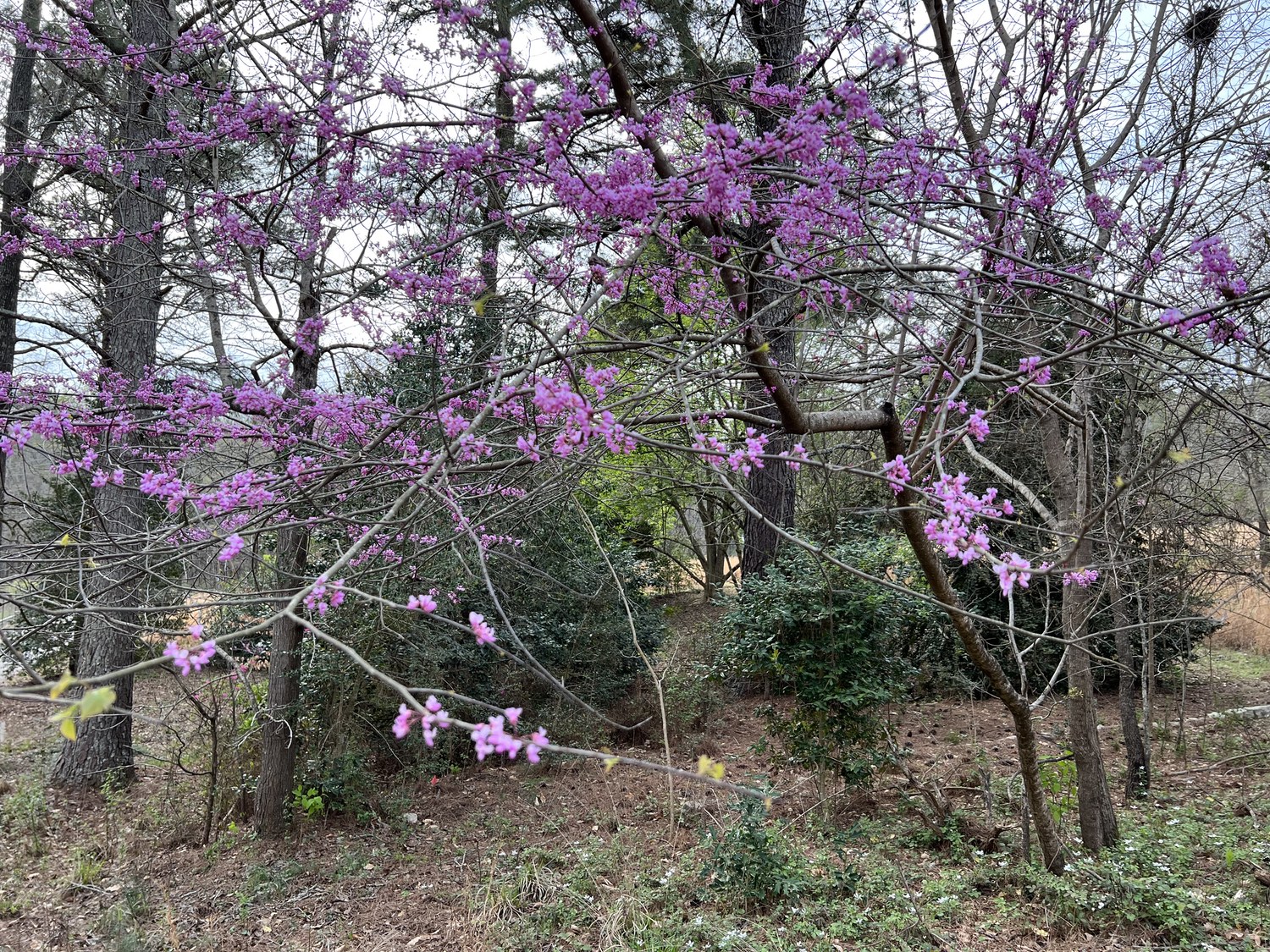SPRING WILDFLOWERS
3/8/23
An afternoon walk today in the UGA Botanical Gardens revealed the vanguard of spring wildflowers. Common Blue Violets were the most common and widespread, but I was surprised in the end how many species I saw. Flowers were most common in shady, moist, hardwood valleys and in the moist sandy areas along the levee of the Middle Oconee River. Hardwood ridges and the pine forests were nearly devoid of flowers. Most of the flowers I saw today are similar to what I found in 2020.
Common Blue Violets (Viola sororia) were the most widespread: along rocky streamsides, in relatively dry parts of the forest, in the sandy levee soils, and super-abundant along the roadside. The range of colors is enormous, from deep purple, to lavender, to purple throats with white edges, to white. It is possible that some of these may be different species.
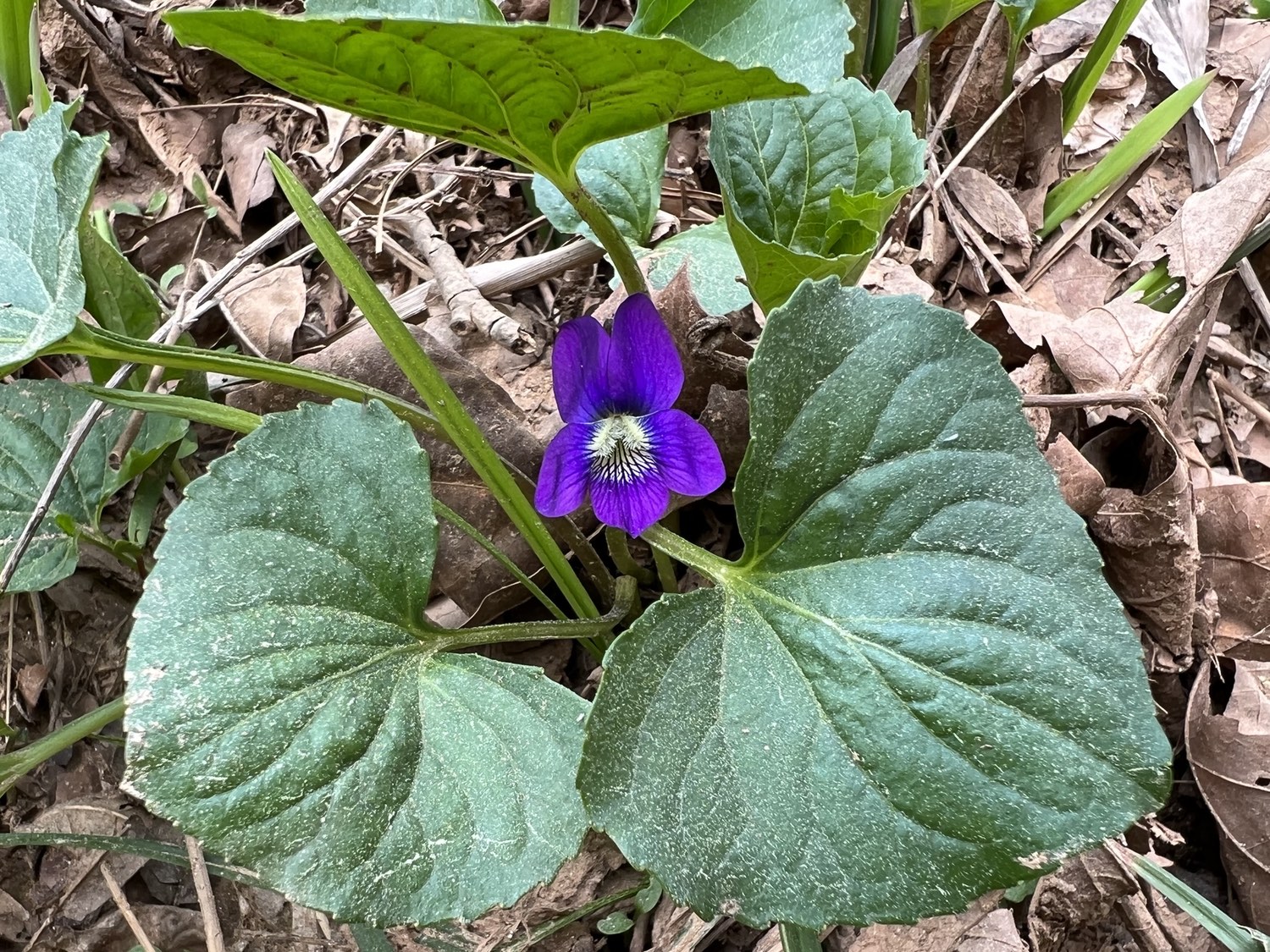
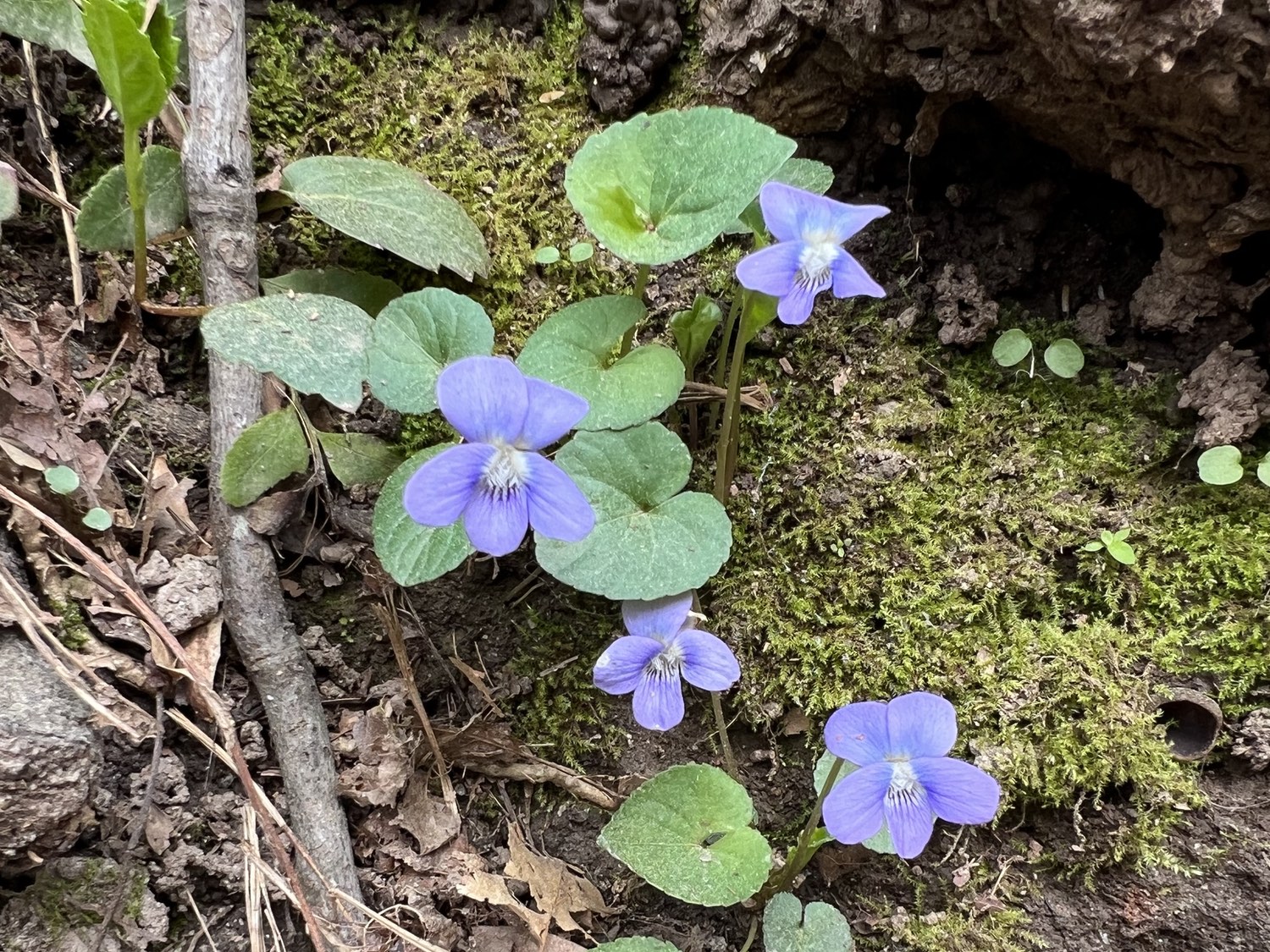
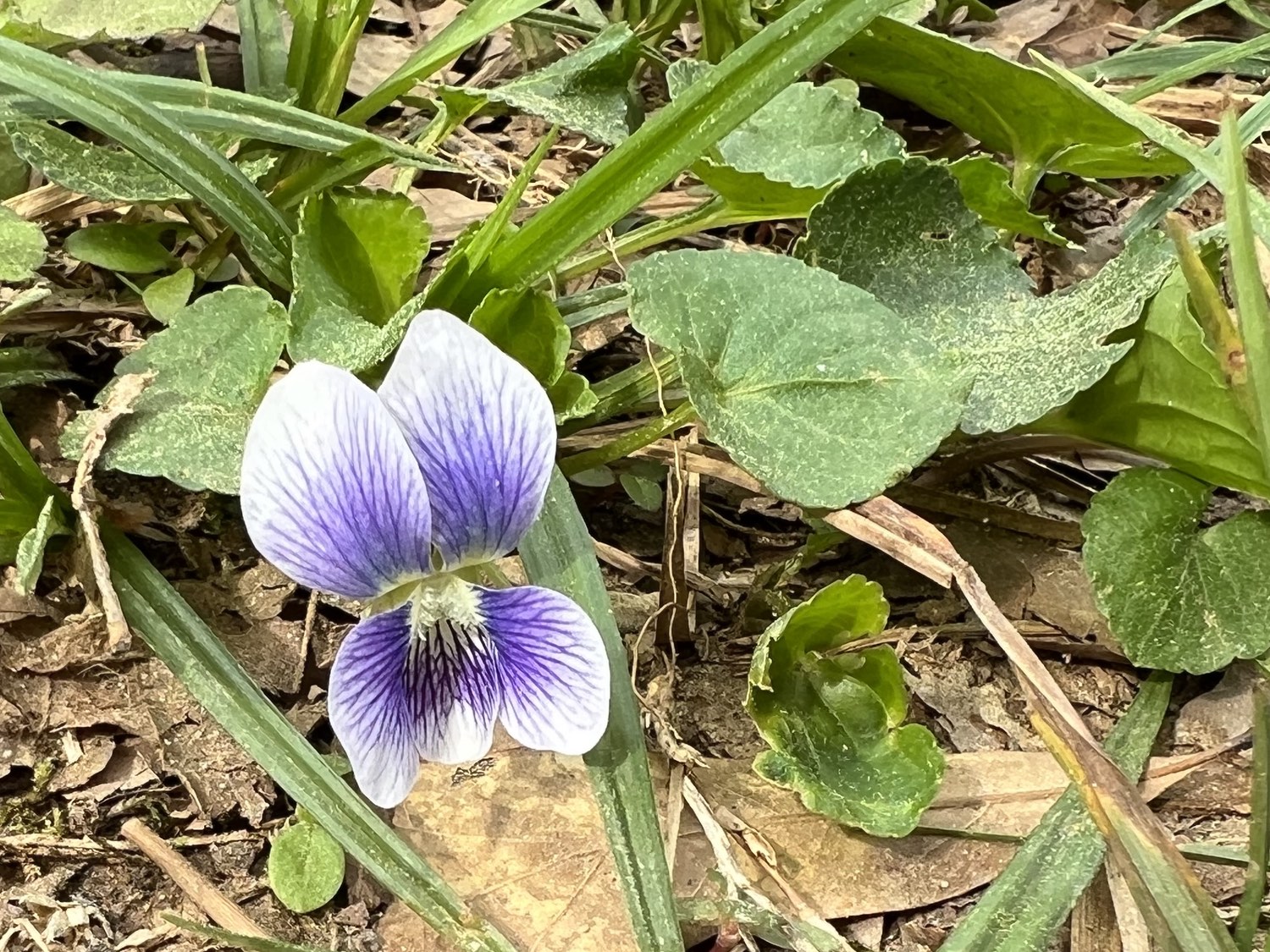
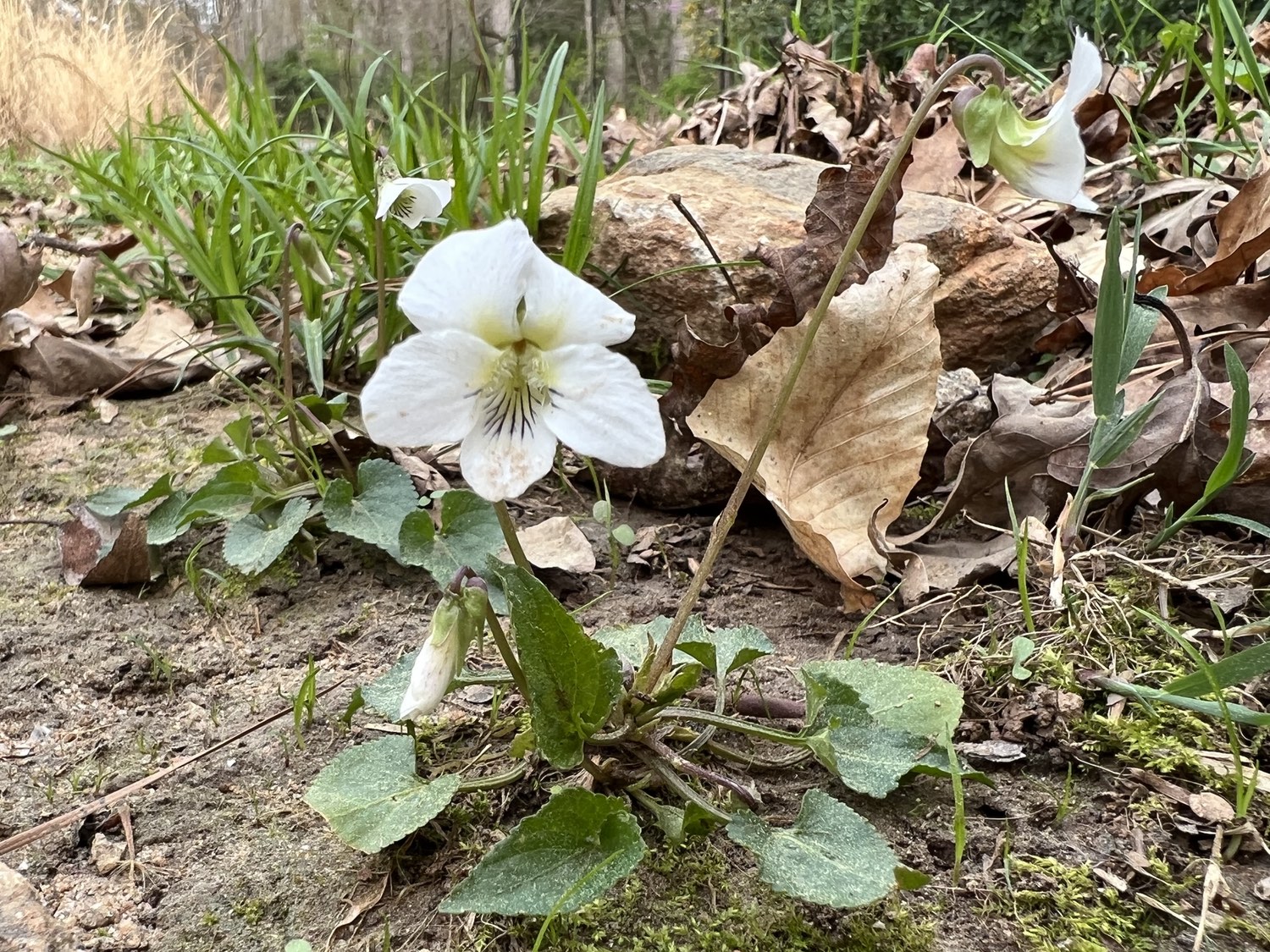
Three-Parted Yellow Violet (Viola tripartita) was rare: I found only one of these in a hardwood valley. It’s distinctive deeply divided three-part leaves is a good clue to its identification.
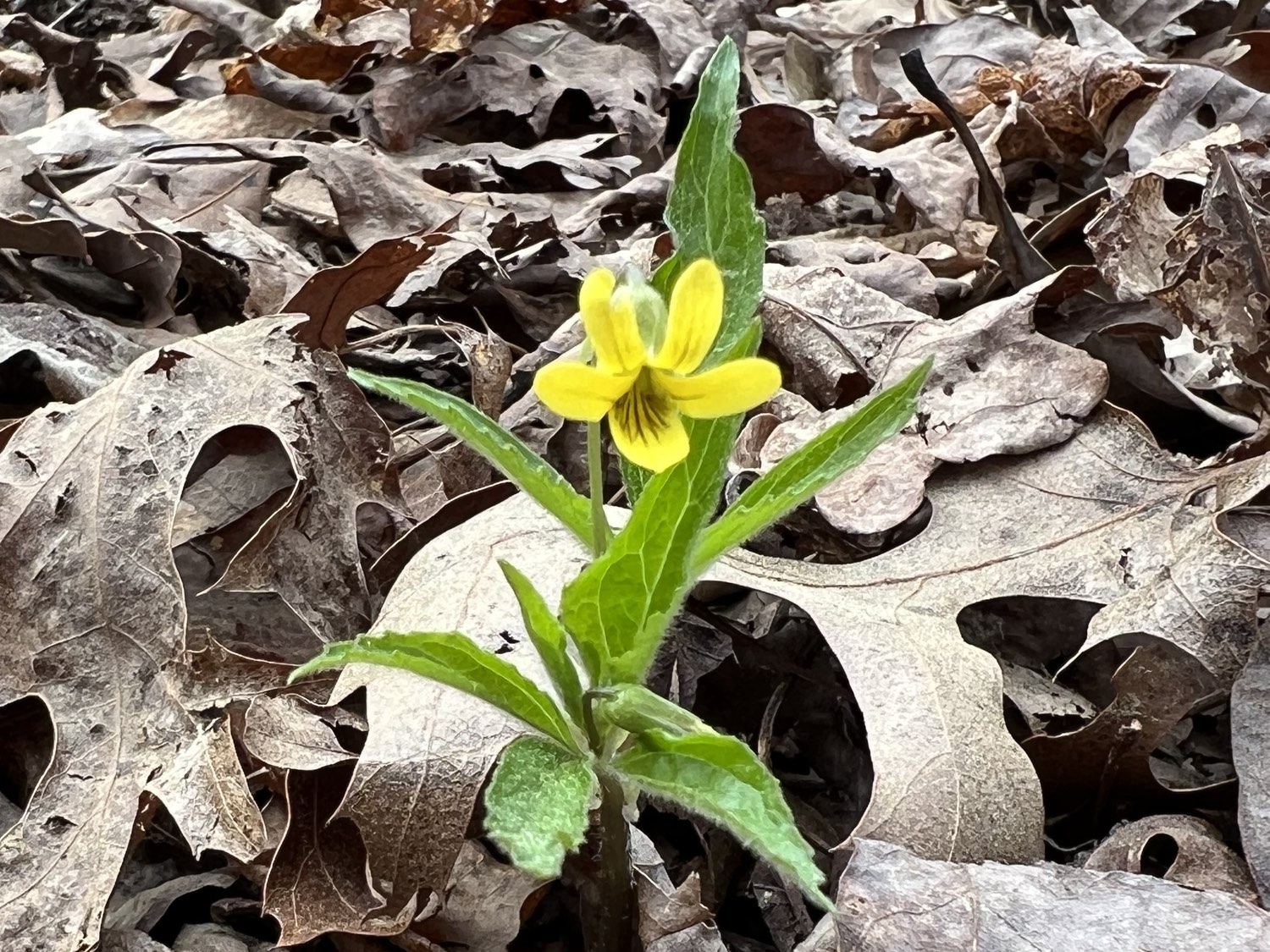
Starry Chickweed, also called Giant Chickweed, (Stellaria pubera) was present in a few places in a hardwood forest right along a creek. I thought these were two different flowers at first, because the flower in the upper photo is about half the width of those in the lower. Although it looks like these have ten white petals, it is actually five deeply divided petals.
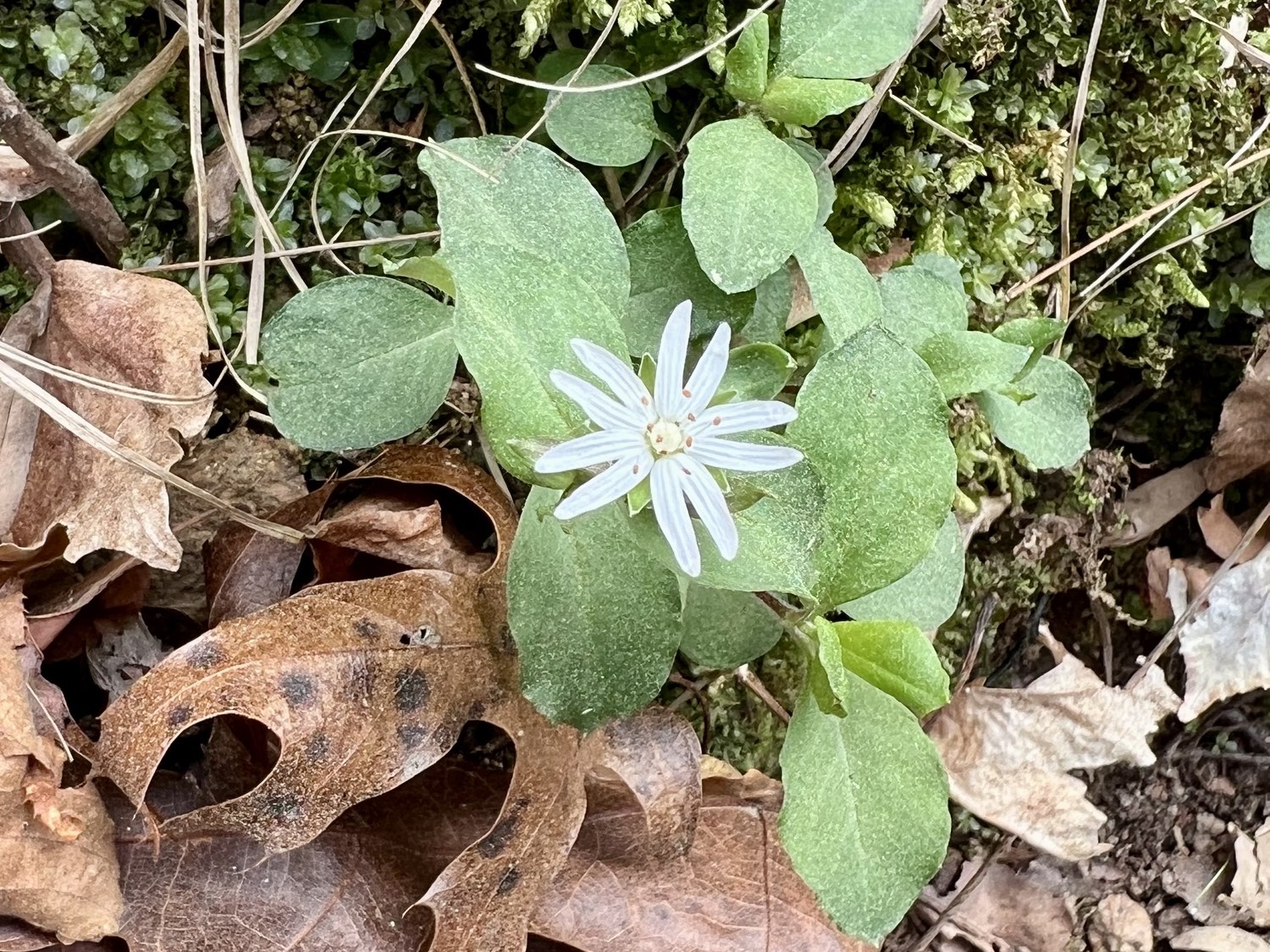
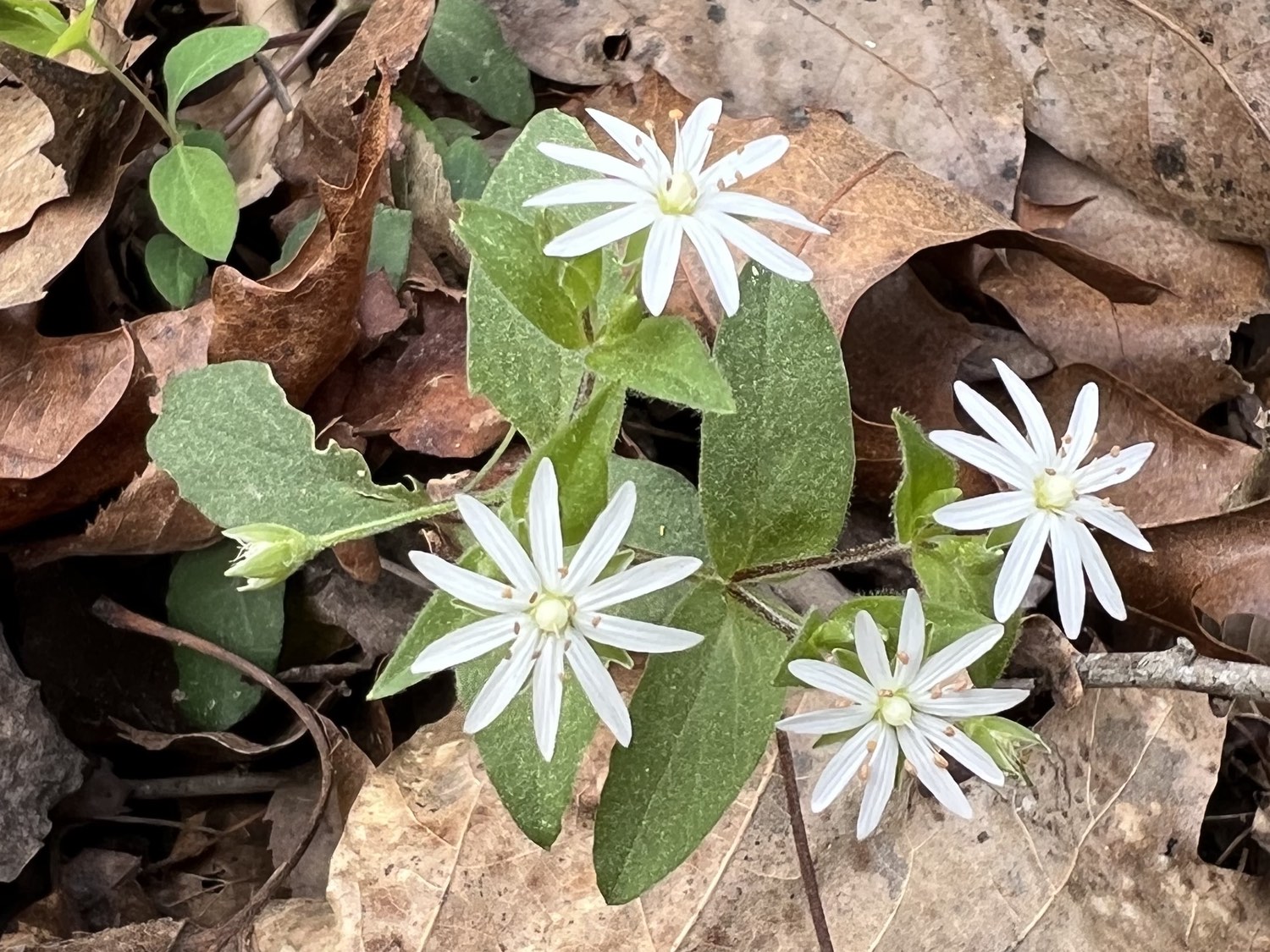
Bloodroot (Sanguinaria canadensis) was blooming in only one spot, near the head of the creek in the hardwood forest. I’d seen its distinctive leaves (without the flowers) at several points on the trail up until then, all in hardwood forests.
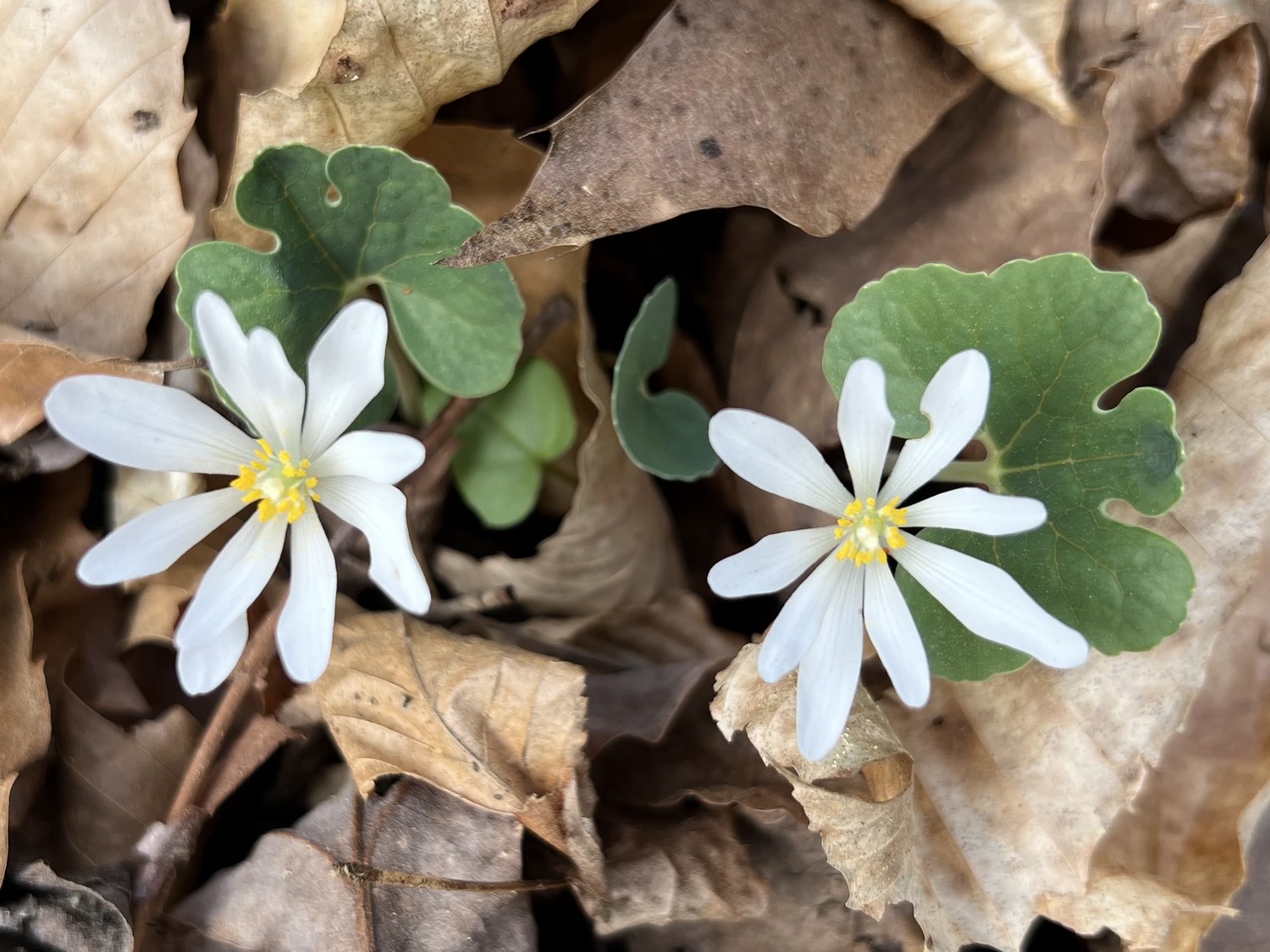
Southern Dewberry (Rubus flagellaris) grew in large clumps along the sidewalk at the power-line cut by the river. It grows as vines and thorny shrubs. Several species look similar, and I may not have the name correct on this.
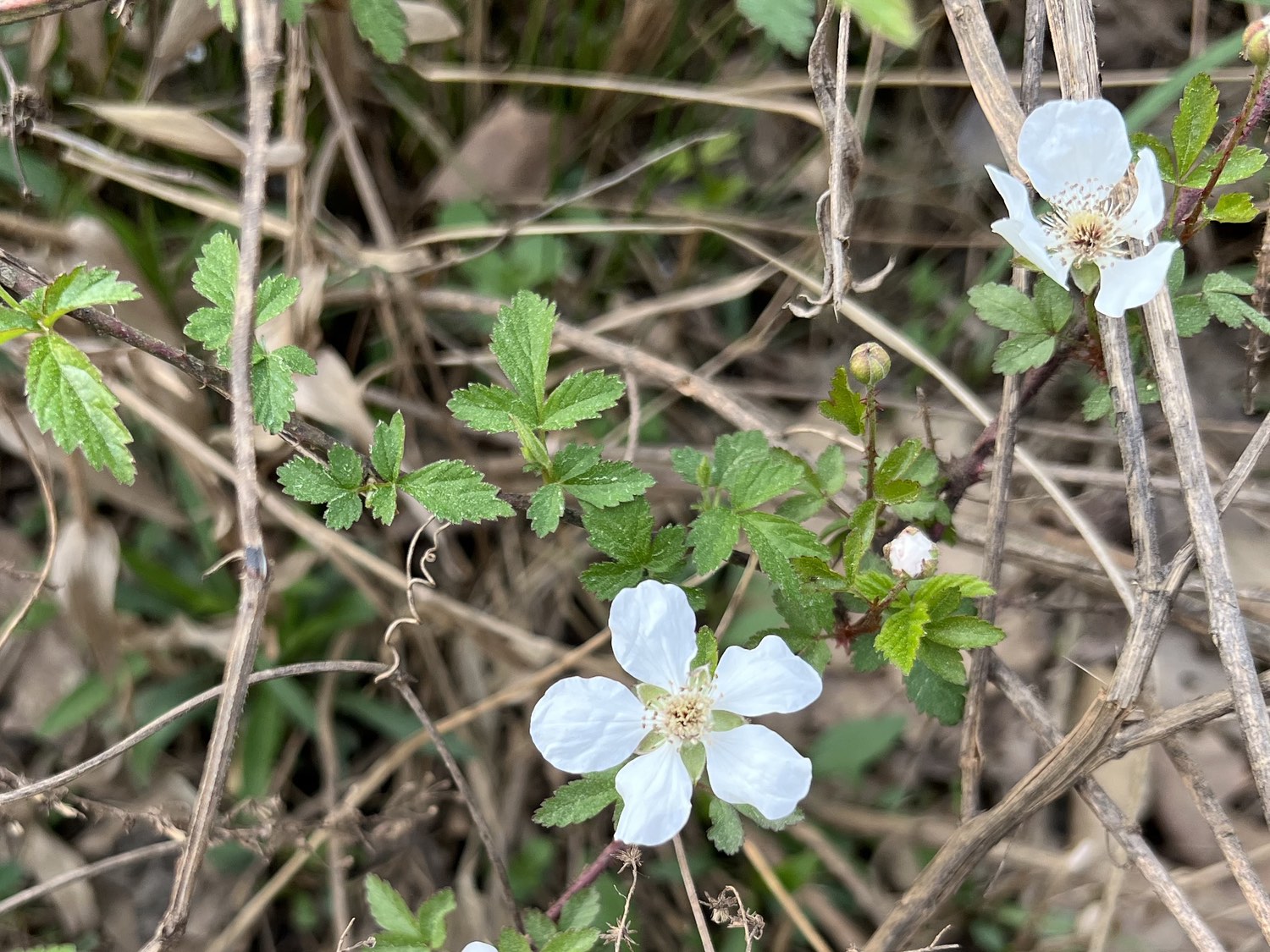
Green-and-Gold (Chrysogonum repens) was also present along the creek. We have this in our neighborhood along the street.
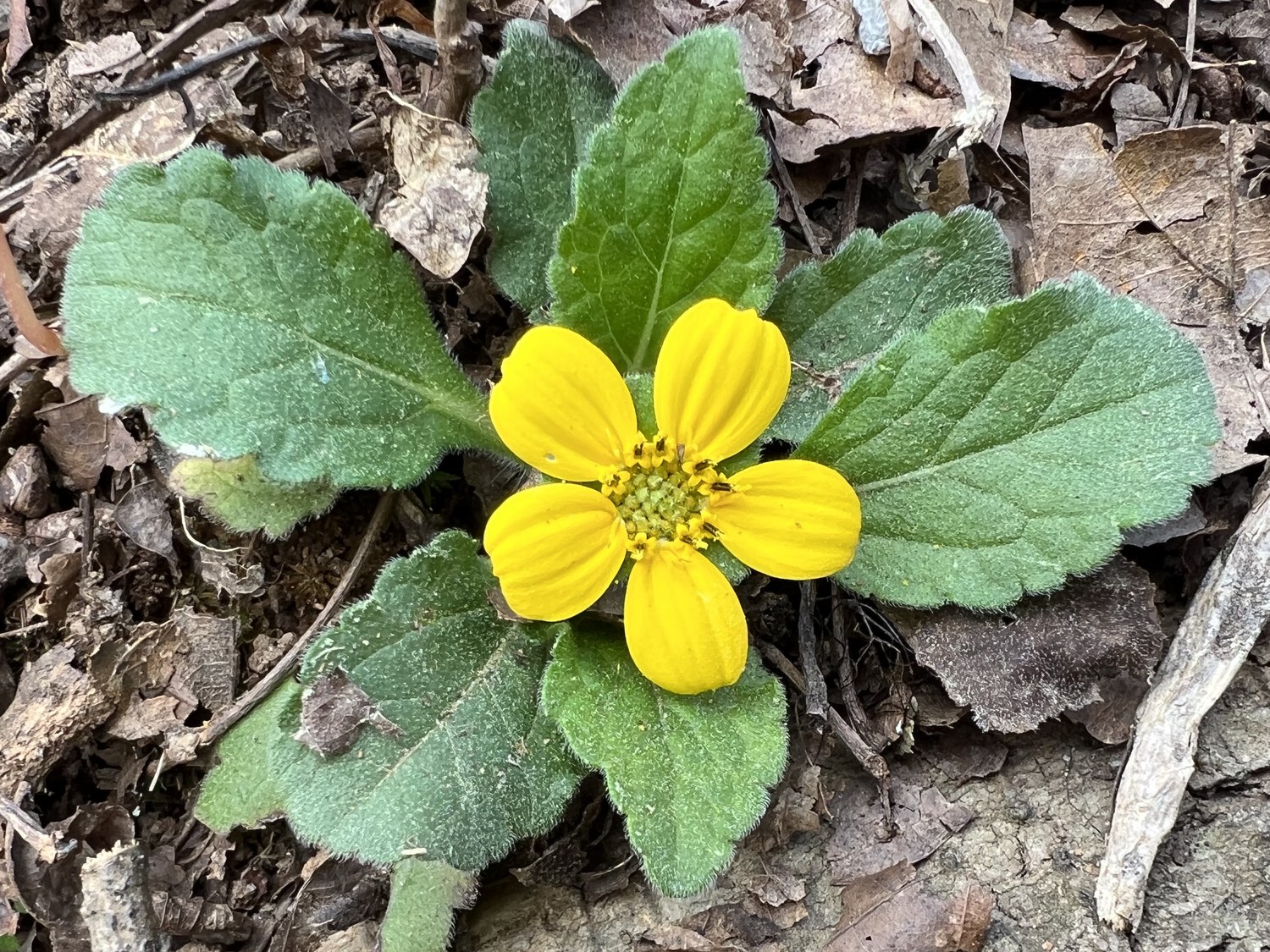
Mock Strawberry (Potentilla indica) is similar looking, but the leaves are very different, being the distinctive toothed leaves of three of a strawberry. This was growing on the sandy levee along the river.
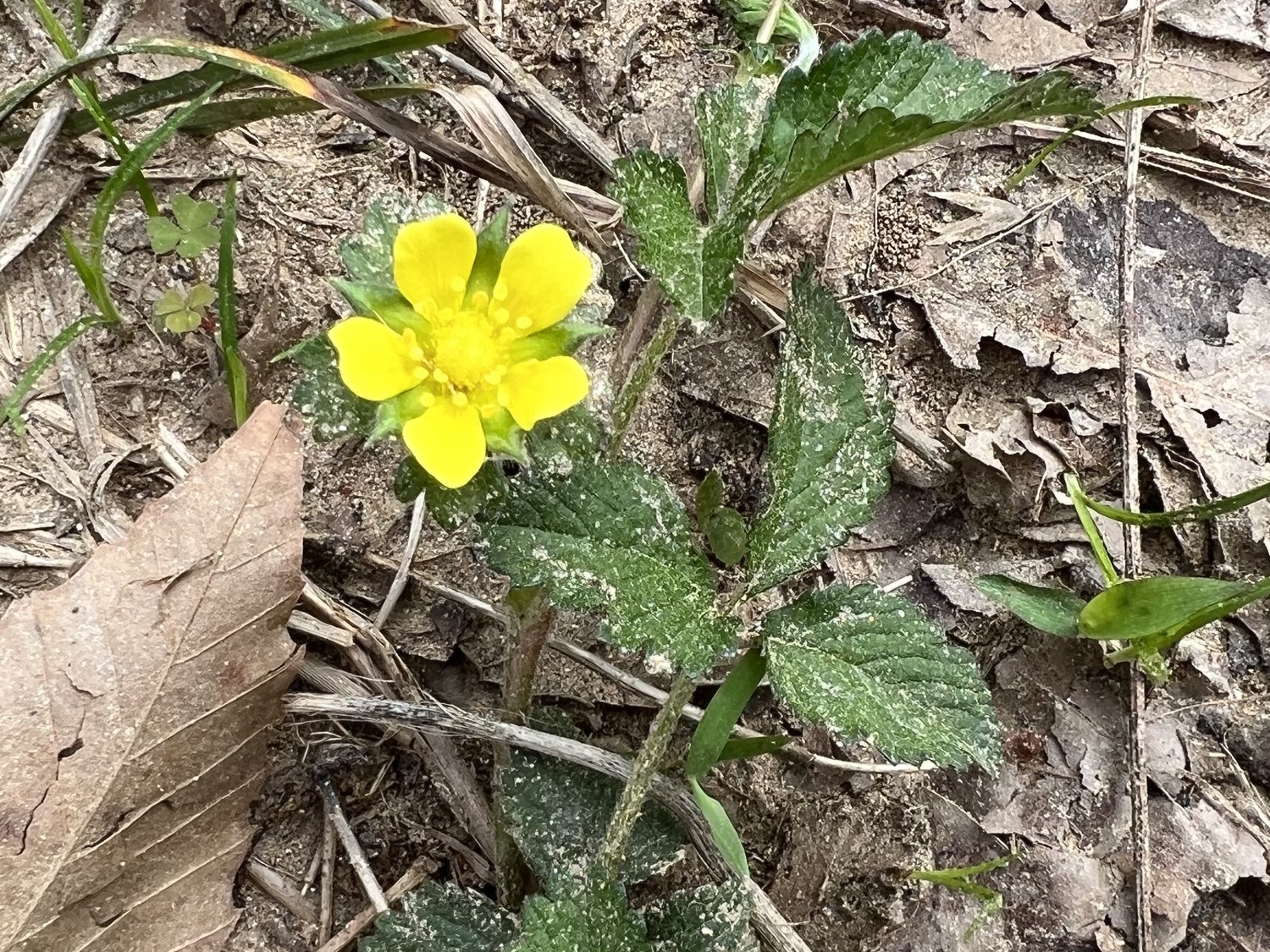
Yellow Corydalis (Corydalis flavula) is another yellow flower growing on the sandy levee. The leaves remind me of parsley.
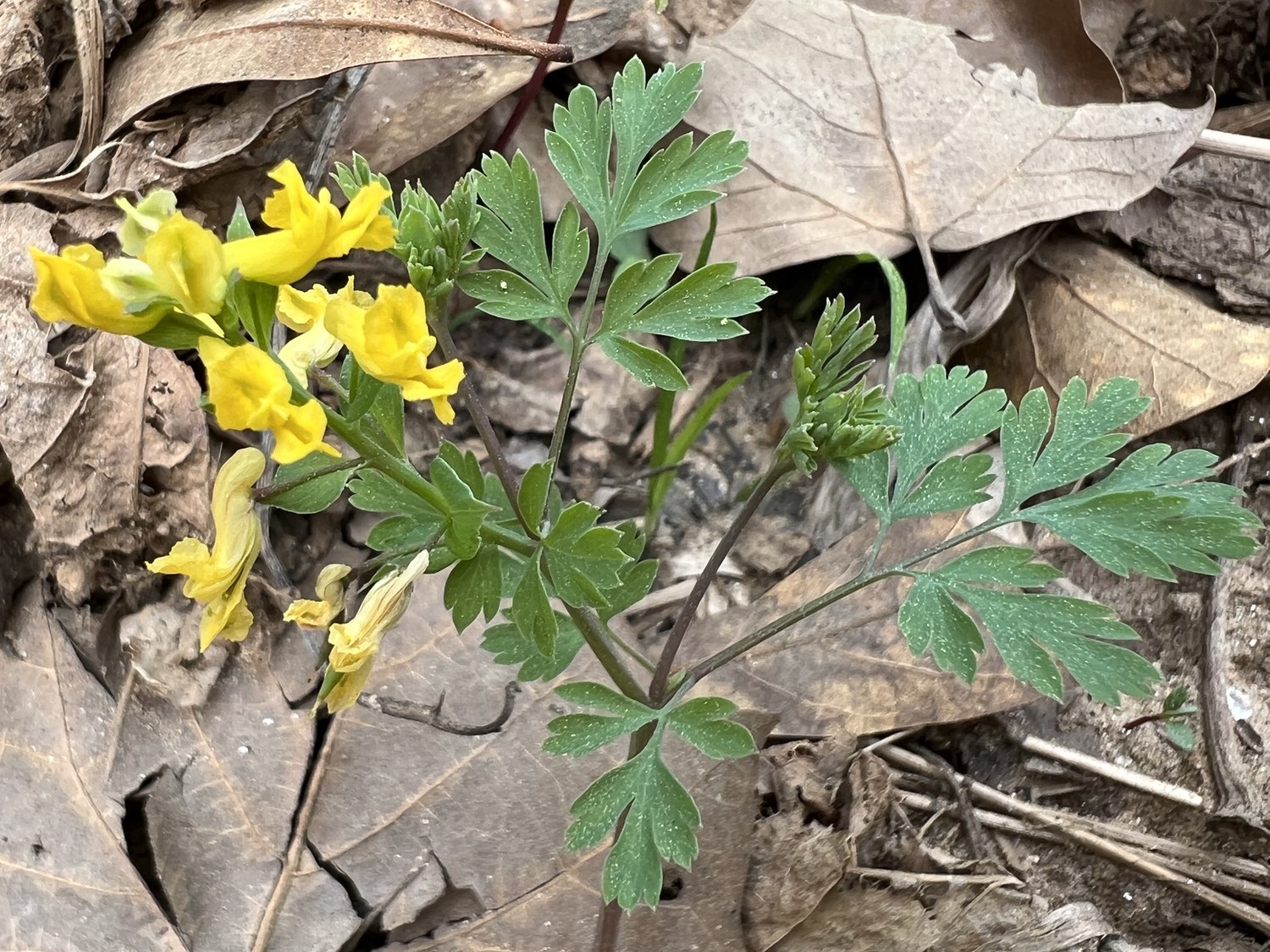
Common Dandelion (Taraxicum officinale) brings the yellow flowers to an end. This was growing along a sidewalk.

Tiny Bluet (Houstonia pusilla) These tiny (5 mm) 4-petaled flowers were growing along the power line cut at the far end of the White Trail. I saw only a few, but I know that they are very abundant at other times in the year.
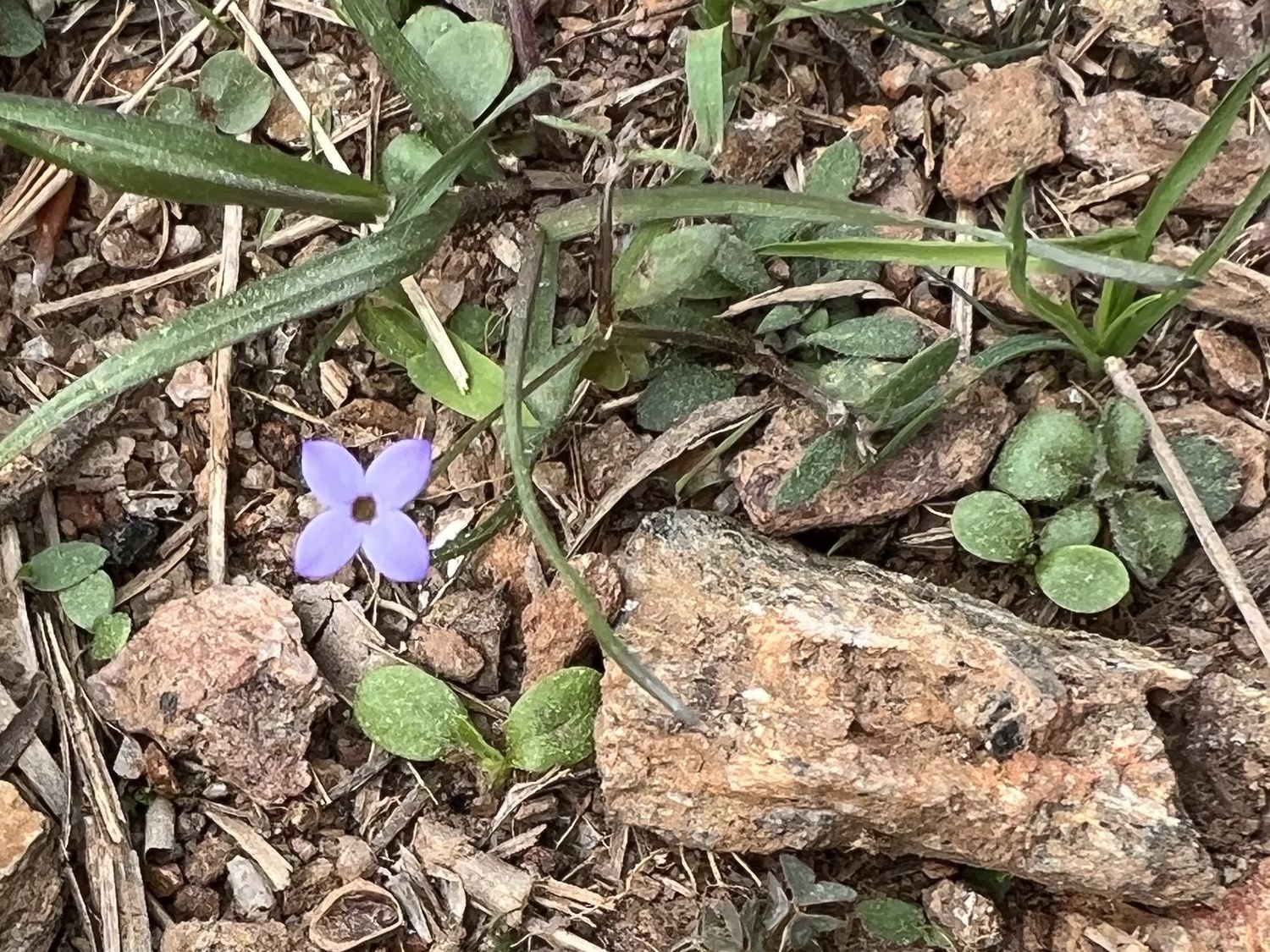
Ground Ivy (Glechoma hederacea) was common along the sandy levee, and on other disturbed slopes, such as along the river.
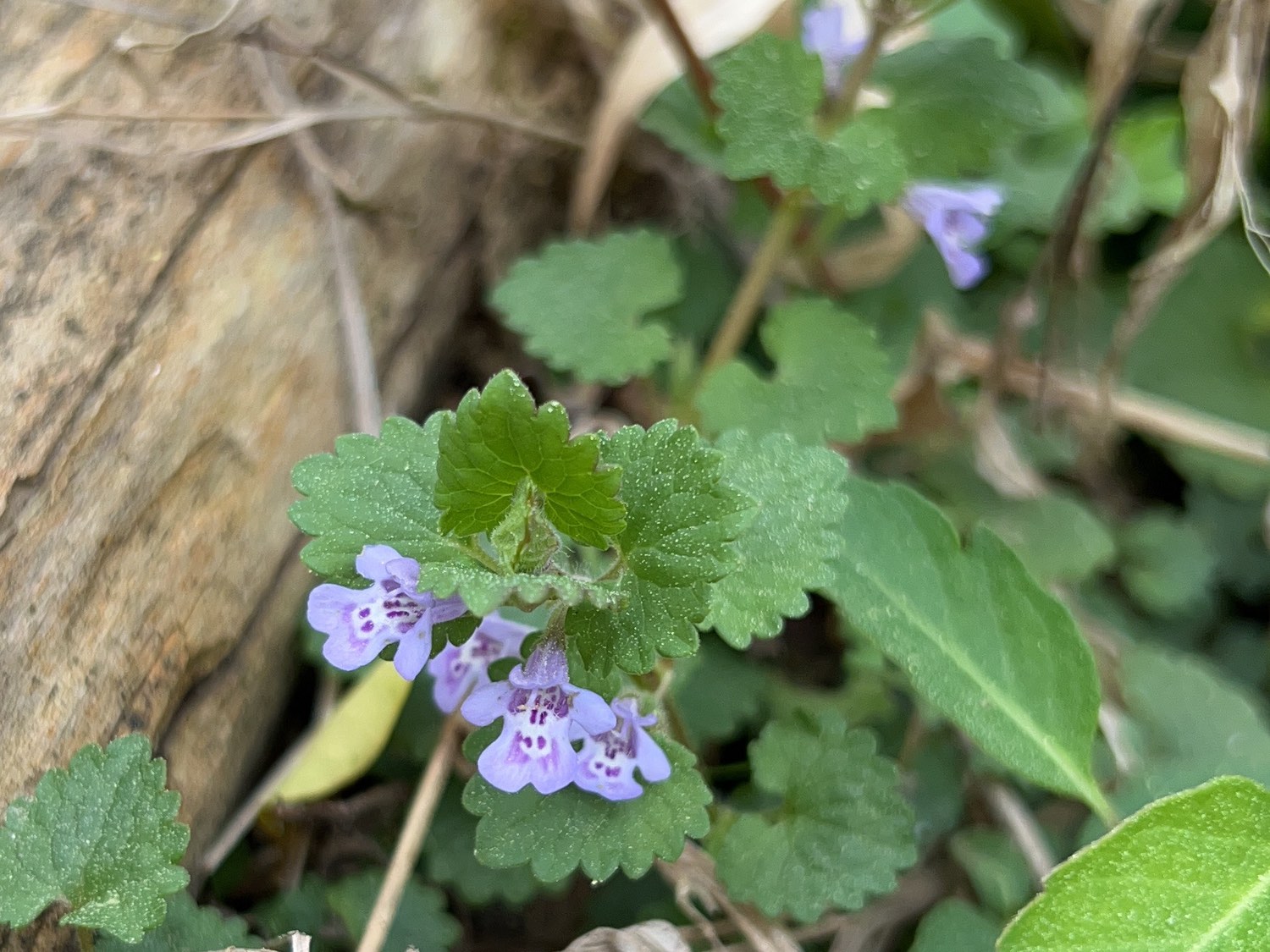
May Apple (Podophyllum peltatum) are not yet blooming, but a large patch of them is rising near the Middle Oconee River, where the Blue Trail meets the White Trail.
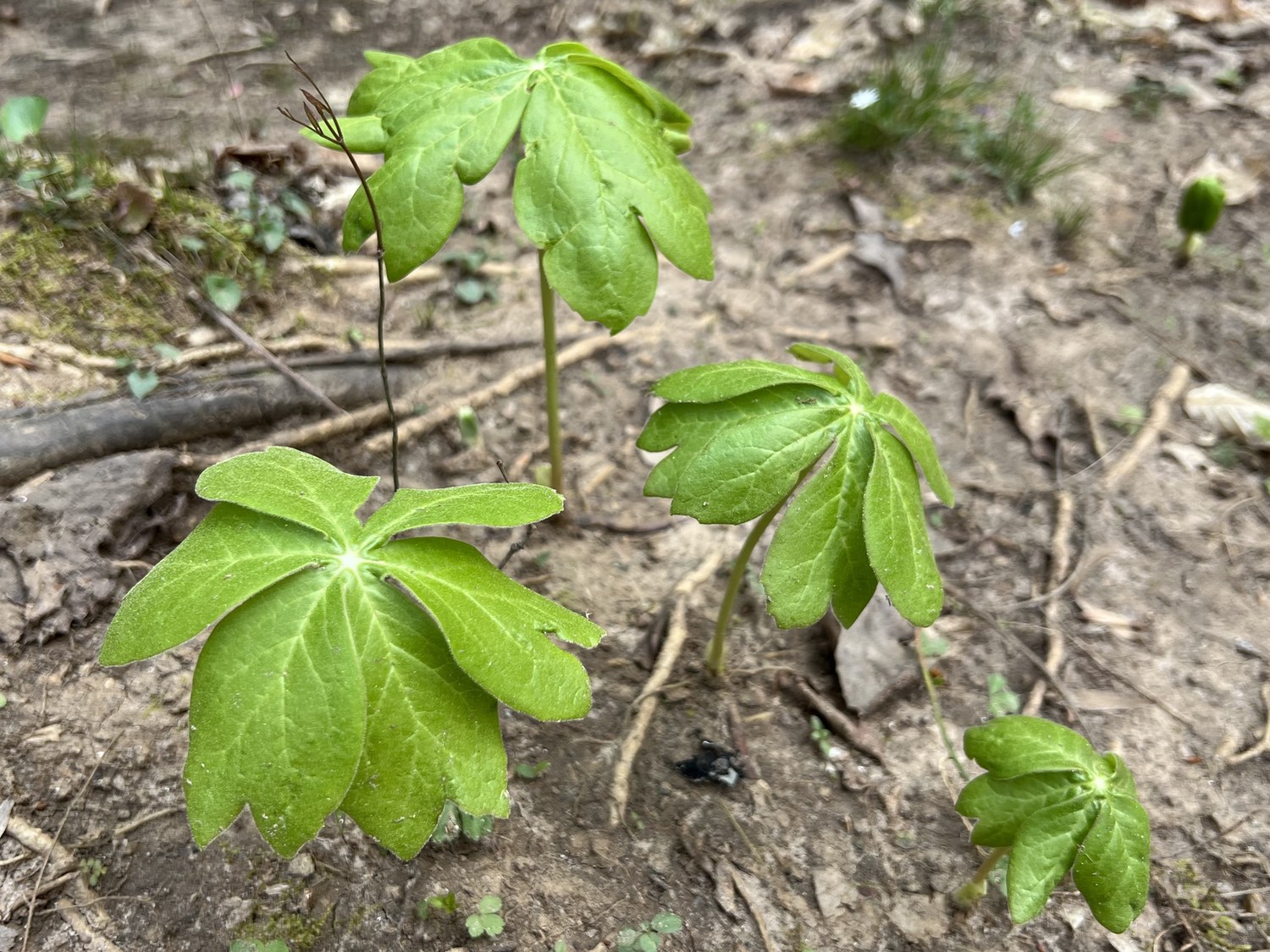
This Trillium is also not yet blooming, but it’s leaves are distinctive. I saw only one, growing along the road.
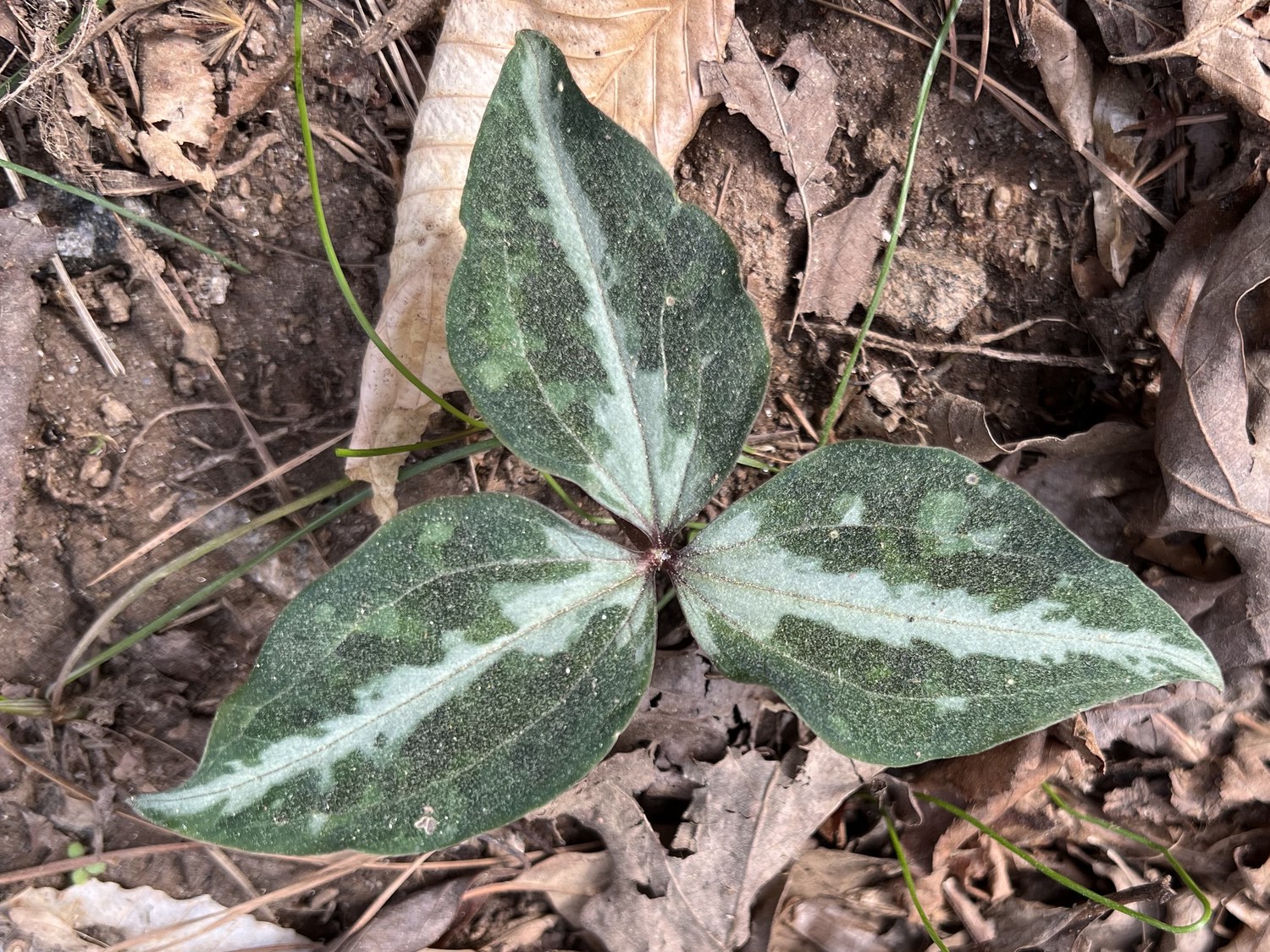
Little Brown Jug (Hexastylis arifolia) is’nt a flower, but the distinctive leaves stand out on the forest floor.
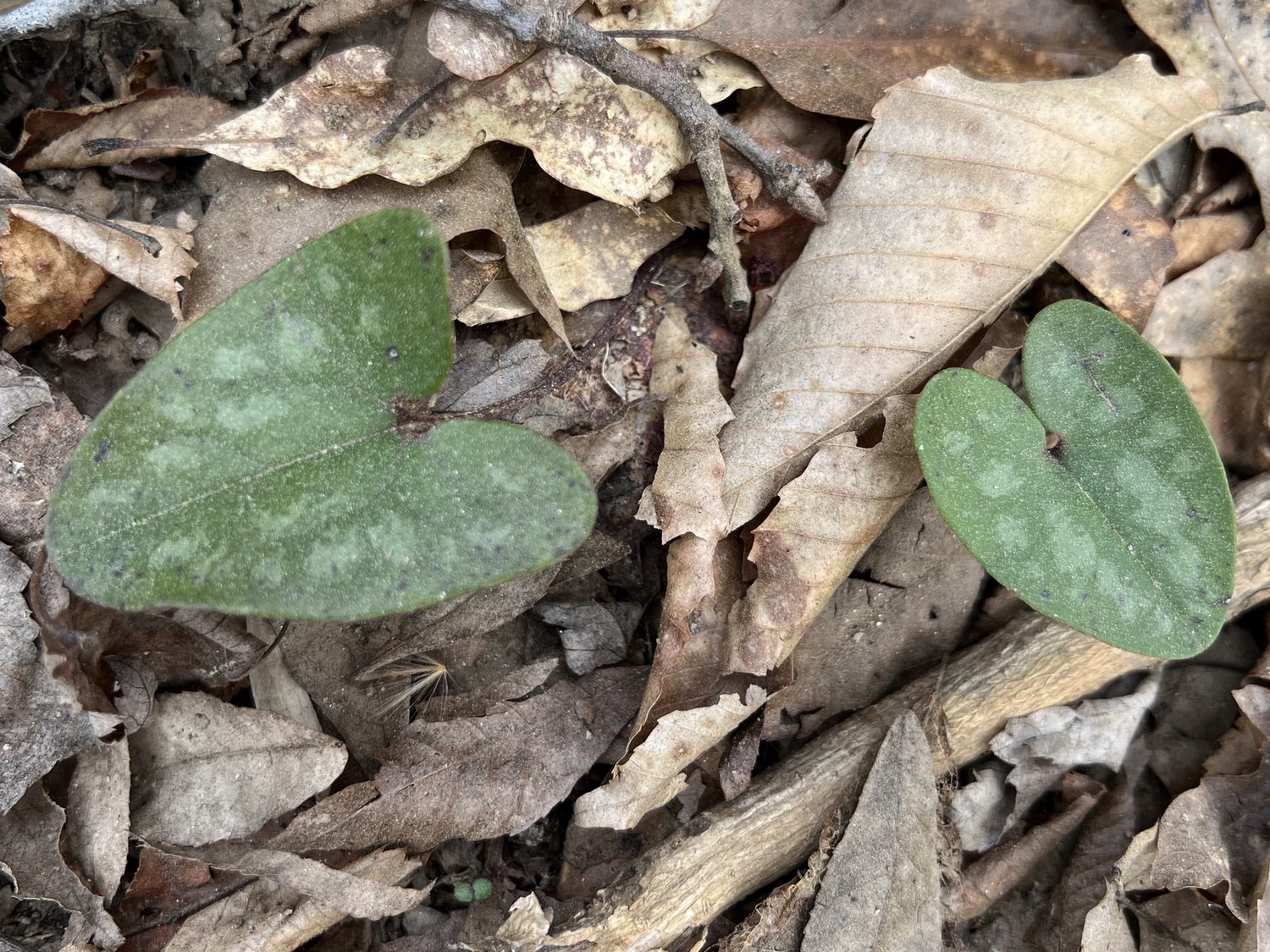
Eastern Redbud (Cercis canadenssis) is blooming, along with several other trees, including Bradford Pears and the shrub Japanese Honeysuckle, which is just starting to bloom.
